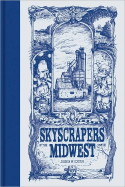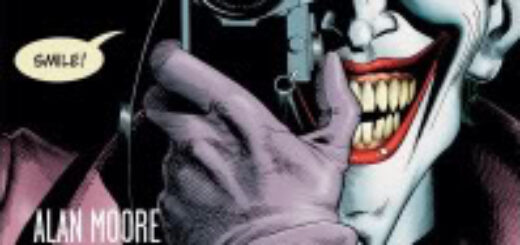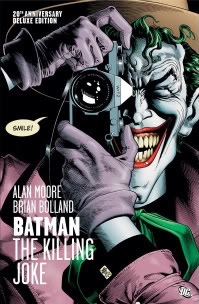Review: ‘Skyscrapers of the Midwest’ by Joshua W. Cotter
 Skyscrapers of the Midwest
Skyscrapers of the Midwest
By Joshua W. Cotter
AdHouse Books, June 2008, $19.95
If Chris Ware were a few years younger, grew up in a more religious household, and had less of an obsession with comics formalism, he just might have become Joshua Cotter. Or maybe that’s just me being flippant – it isn’t really fair to Cotter; his work covers some of the same emotional terrain as Ware’s, but is otherwise very different.
[[[Skyscrapers]]] is difficult to describe; it’s made up of many short stories – sometimes as many as three to a page – that mostly focus on a family in the small town of South Nodaway, somewhere in the vast American Midwest in 1987. There’s also the robot Nova Stealth, who is both the human-sized hero of a Marvel-ish comic the elder boy of the family loves, that boy’s robot toy, and a gigantic god-figure stalking across the landscape, sometimes in imagination but other times clearly real. And then there are the stories that get into really weird stuff.
The stories mostly focus on the family’s ten-year-old son, who is never named. Neither are his father or mother, though his younger brother Jeffrey has the same name as Cotter’s own younger brother (to whom the book is dedicated). And Cotter was born in 1977, which would make him ten year old in 1987 – the same age as his fifth-grade hero. So we do know a name for this boy, even if that name never appears in the book.


 For anyone familiar with the online presence of award-winning writer
For anyone familiar with the online presence of award-winning writer 
 Comics have long been a haven for collectors, that niche of consumers who’ll drop six figures on an old Disney issue or a near-mint of a Golden Age superhero.
Comics have long been a haven for collectors, that niche of consumers who’ll drop six figures on an old Disney issue or a near-mint of a Golden Age superhero. I did a
I did a  With only a matter of hours until much of the ComicMix team heads out to Chicago for this year’s show, it’s only right to post a story or two with ties to the ol’ Windy City.
With only a matter of hours until much of the ComicMix team heads out to Chicago for this year’s show, it’s only right to post a story or two with ties to the ol’ Windy City.  Writer and Xeric Grant winner Neil Kleid has come a long way since he wrote his award-winning improvised comic Ninety Candles. Since that time, he’s managed to have a diverse and interesting writing career tackling various comic book titles such as G.I. Joe and X-Men Unlimited.
Writer and Xeric Grant winner Neil Kleid has come a long way since he wrote his award-winning improvised comic Ninety Candles. Since that time, he’s managed to have a diverse and interesting writing career tackling various comic book titles such as G.I. Joe and X-Men Unlimited. I always thought Thomas Wolfe was full of shit. Of course you can go home again. Heck, with the Internets you can bring home with you wherever you go.
I always thought Thomas Wolfe was full of shit. Of course you can go home again. Heck, with the Internets you can bring home with you wherever you go. The
The Well, that
Well, that Something of a preamble, here, so sit tight and now dig this: The comics-censorship ruckus of the post-WWII years had begun to peter out, if only just, as the phobic 1950s gave way to the larger struggles – expression vs. repression, in the long wake of the Depression – of the presumably more free-wheeling 1960s. All were rooted in a popular urge to embrace the freedoms that the close of World War II was supposed to have heralded; a contrary urge to confine such freedoms to a privileged few was as intense, if not necessarily as popularly widespread.
Something of a preamble, here, so sit tight and now dig this: The comics-censorship ruckus of the post-WWII years had begun to peter out, if only just, as the phobic 1950s gave way to the larger struggles – expression vs. repression, in the long wake of the Depression – of the presumably more free-wheeling 1960s. All were rooted in a popular urge to embrace the freedoms that the close of World War II was supposed to have heralded; a contrary urge to confine such freedoms to a privileged few was as intense, if not necessarily as popularly widespread.








